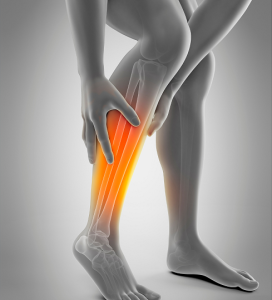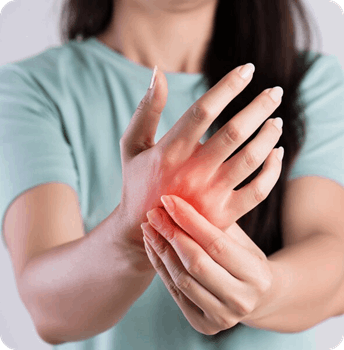Understanding the Different Causes of Knee Pain

Knee pain is a problem that can impact a person’s daily activities and quality of life. It can occur for various reasons, ranging from an acute injury to chronic medical conditions. Here is more information on some of the primary causes of pain to help individuals better understand what may be behind their discomfort:
Acute Injuries
Acute injuries can often result in knee pain. Ligament injuries, such as a torn ACL (anterior cruciate ligament) or MCL (medial collateral ligament), can occur in high-impact activities or sudden directional changes. These injuries typically present with symptoms like swelling, instability, and sharp pain.
Another common injury involves the meniscus, the cushioning cartilage in the knee joint. A meniscus tear typically happens during activities requiring twisting or pivoting motions. Symptoms may include locking of the knee or difficulty fully extending the leg. Fractures can also cause significant pain. Trauma, such as accidents or falls, often results in fractures of the patella (kneecap). Immediate swelling and an inability to bear weight are common signs of this injury.
Repetitive Strain
Repetitive movements and prolonged activity often lead to overuse injuries in the knee. One frequent cause is patellar tendinitis, sometimes called “jumper’s knee,” which is an inflammation of the tendon connecting the kneecap to the tibia. This condition is often observed in individuals involved in sports or activities requiring frequent jumping or running.
Another leading cause of knee pain in the overuse category is iliotibial band syndrome (ITBS). The iliotibial band is a thick band of tissue that runs down the outer thigh and knee. ITBS develops in activities such as long-distance running and cycling, especially when the knee bends repeatedly, causing irritation. Bursitis is also a common problem resulting from repetitive strain. It occurs when a bursa, a small fluid-filled sac that reduces friction in the joint, becomes inflamed. This is often due to prolonged pressure or repetitive kneeling.
Chronic Conditions
Chronic medical conditions frequently contribute to ongoing knee pain. Osteoarthritis, the most common form of arthritis, occurs due to wear and tear of the cartilage in the knee joint. Symptoms typically include stiffness, persistent discomfort, and reduced mobility, which gradually worsen over time.
Rheumatoid arthritis is another condition that impacts the knee. It results in joint inflammation caused by the immune system attacking the body’s tissues. This condition involves swelling, tenderness, and warmth in the affected joint. Gout can also lead to acute flare-ups of pain in the knee. It occurs due to the buildup of uric acid crystals in the joint, resulting in intense pain, swelling, and redness. These flare-ups can be sudden and may last for several days.
Get Help With Knee Pain
Knee pain is often caused by injuries, overuse, or chronic conditions. Acute injuries, such as ligament tears or fractures, typically result from trauma or sudden movements. Overuse injuries, like tendinitis or bursitis, stem from repetitive motions or high levels of activity. Chronic conditions, including osteoarthritis, rheumatoid arthritis, and gout, lead to ongoing knee issues. Understanding the potential causes of knee pain is the first step in identifying a solution. If symptoms persist or worsen, consulting a healthcare professional for evaluation and treatment options is recommended.
- What to Expect When Visiting a Foot and Ankle Specialist
- Causes of PTSD
- The Link Between Plantar Fasciitis and Weight Gain: What You Need to Know
- How Pet Ownership Can Positively Impact Life with Fibromyalgia
- The Importance of Stretching and Flexibility in Sports Medicine
Dr. Emma Green is a health and wellness expert with over 10 years of experience in nutrition and fitness. Passionate about helping others live their healthiest lives, Dr. Green shares practical advice on wellness, nutrition, and sustainable living through LivingSpristine.






